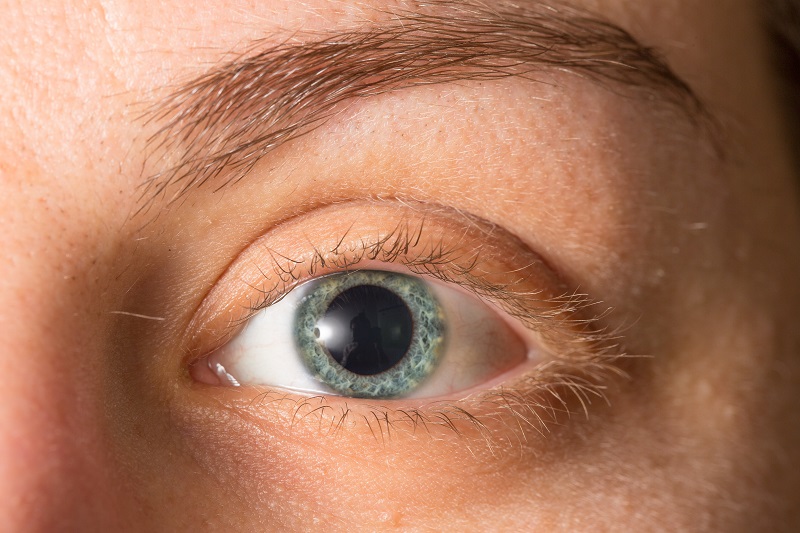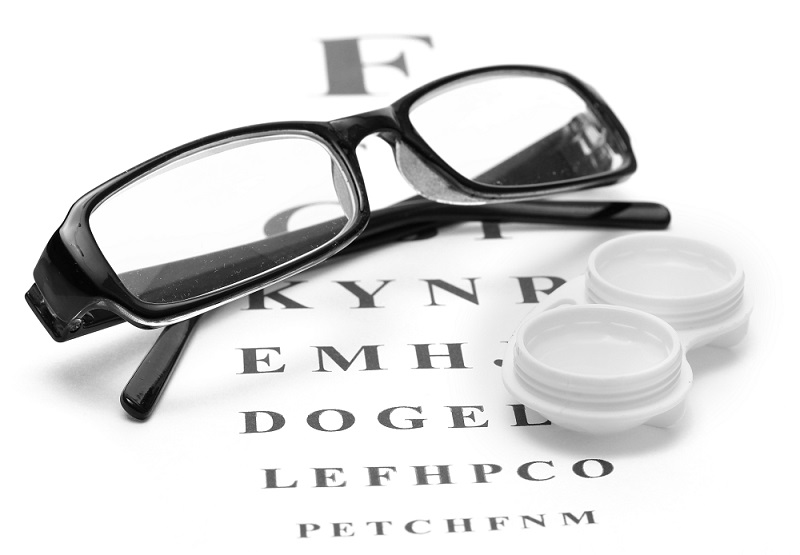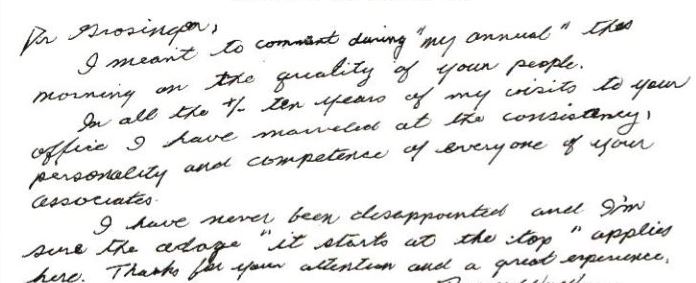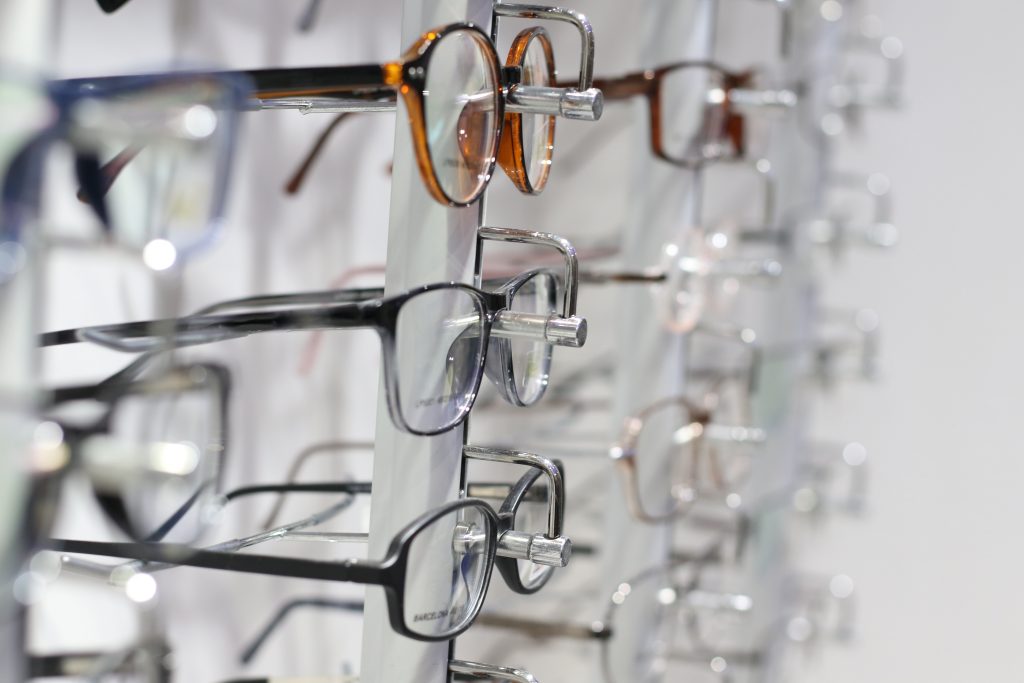Why Can I See Better When I Squint My Eyes?

Most people think that you would see better when your eyes are open wider. This sounds logical. Your eye is getting a broader view of the world, and more light is accessible to produce a clearer image. However, in practice, many people find that the opposite is true.
When we squint, we can often see things a little clearer. That’s why we squint to see the alarm clock when we wake up at 2 am. What is it about squinting that helps us see better than when our eyes are wide open?
What Does Squinting Do to Your Eye?
Even though it doesn’t feel much different, squinting does three things to our eyes that lead to slightly clearer vision.
- Our Eye Lens Changes Shape – The lens of the eye is flexible and changes shape when we squint.
- The Eye Lens Adjusts – Small adjustments in the lens allow us to focus better, much like a camera.
- Less Light Enters the Eye – Less light enters, reducing the impact on the retina and allowing the object we view to look sharper.
Why Do I Have to Squint So Much?
Occasional squinting is normal, even for people with healthy eyes and clear vision. If you are over the age of 40 and have never had to wear prescription glasses, then this is likely normal.
If you find yourself squinting a lot, then you may need to talk to an eye doctor. This could be a sign of eye strain or fatigue. You may need glasses if you also experience:
- Headaches
- Double vision
- Difficulty reading
Other symptoms, like feeling pressure in the eye, seeing halos, and decreased night vision could indicate a developing problem. Contact Grosinger, Spigelman & Grey to schedule an ophthalmologist appointment for a comprehensive eye exam to find out if you need glasses and assure that your eyes are healthy.
Planning a Trip to San Francisco?

The first public museum strictly to address vision is set to up in 2020. Learn more.
Why Does My Doctor Dilate My Eyes During an Exam?

Eye dilation is an important part of your exam. This is usually done using eye drops that keep the eyes dilated for approximately 20 to 30 minutes. Patients with lighter color eyes may experience a longer duration before the effect wears off. Once applied, the drops cause the pupils to open fully.
Getting a Good Look Inside Your Eye
Dilated eyes allow your ophthalmologist to get a better look at what’s going on in your eye. They can identify problems that, if left untreated, could cause blindness, like a tumor or detached retina. They can also look for signs of eye diseases, including:
- Cataracts – A cataract is a cloudiness that forms on the eye lens. It causes vision problems and requires surgery to remove.
- Age-Related Macular Degeneration – AMD can be diagnosed by the presence of abnormal blood vessels and pigment or protein build up.
- Glaucoma – Glaucoma causes damage to the optic nerve over time. If untreated, it can cause permanent vision loss.
- Diabetic Retinopathy – Diabetic retinopathy includes blood vessels in the retina that swell, leak, or grow abnormally.
What Can I Do While My Eyes Are Dilated?
Dilated eyes don’t usually affect your ability to see at a distance. However, your pupils cannot control how much light enters your eye, which can make glare a problem. This may mean it is unsafe to drive unless you wear sunglasses to help manage the glare.
You may not be able to return to work right away if you need to see things that are close to your face, so it is best to schedule your appointment accordingly.
Contact Grosinger, Spigelman & Grey located in Bloomfield Hills to book an appointment with one of our top ophthalmologists.
Are You a Candidate for LASIK?

Is LASIK Right for Me?
The LASIK procedure was developed for ophthalmic use in the early 80s and was approved by the FDA in 1995. A lot has changed since then. Is LASIK a safe way to correct your vision?
LASIK Has a High Patient Satisfaction Rate
Over 19 million LASIK surgeries have been performed in the United States. The procedure maintains a very high patient satisfaction rate. According to clinical data, over 95% of patients reported a positive response to the surgery. The rate of complications was under 1%, making it extremely safe for the majority of patients.
Different factors can affect results, which is why a medical professional should be consulted before undergoing LASIK. Your ophthalmologist can advise you on possible complications or if a preexisting condition could affect results.
LASIK May Be Safer Than Wearing Contacts
Did you know that LASIK surgery may be safer than wearing contact lenses? The procedure has been scrutinized through FDA clinical trials consisting of over 9,000 patients between 1993 and 2005. There are over 7,000 peer-reviewed studies that were published, all confirming that the surgery is safe and effective.
A recent analysis was performed that compared rates of infection between LASIK and soft contact lenses. There were three times more cases of microbial keratitis in patients who wore contacts compared to those who underwent LASIK.
Is LASIK the Best Choice for Me?
LASIK surgery works for many, but it isn’t a one-size-fits-all solution. Make sure you choose a treatment that is ideal for you based on health status and vision needs. Contact Grosinger, Spigelman & Grey located in Bloomfield Hills to schedule a LASIK consultation.
We Appreciate Barry’s Kind Words

Grosinger, Spigelman & Grey doctors and team members take patient care very seriously and strive to be the best in ophthalmology. We very much appreciate Barry, as well as, so many of our other patients taking the time to write us such beautiful notes. We thank you for choosing us for your eye care. We never take it for granted.
Are Brown Eyes Dominant Over Blue Eyes?

According to scientists a person’s eye color is not determined by a single gene but is a multi-gene trait. This discovery has changed the old theory that brown eyes are dominant over blue eyes. The answer is just not that simple.
5 of the Best Foods for Eye Health

Your diet plays a major role in your eye health. Nutritious foods will help you maintain clear vision and reduce the risk of disease. Some menu items are particularly good for you. What are the best foods for your eye health?
- Omega-3 Rich Fish
Fish that is rich in omega-3 fatty acids are great for your body and your eyes. Studies have indicated that consuming fish oil can help reverse dry eye. The most beneficial types of fish to eat include: salmon, mackerel, tuna, sardines, trout, herring, and anchovies.
- Bell Peppers for Vitamin C
Raw bell peppers offer a high amount of vitamin C which is good for blood vessels in the eyes. Research suggests that including peppers in your diet can help lower your risk of developing cataracts. Other delicious options include papayas, cauliflower, and bok choy.
- Seeds and Nuts for Vitamin E
Sunflower seeds and nuts make a great snack because they are rich in vitamin E. Vitamin E helps slow the progress of age-related macular degeneration (AMD). Great options include peanut butter, peanuts, almonds, and Hazelnuts.
- Boost Vitamins with Dark, Leafy Greens
When mom says to eat your greens, you should listen to her. Dark, leafy greens like spinach and kale are rich in vitamins C and E. They also contain zeaxanthin and lutein, which are plant-based forms of vitamin A that help reduce your risk of developing eye diseases like cataracts and AMD.
- Lean Meats and Poultry for Vitamin A
Lean meats and poultry provide your body with zinc, which brings vitamin A from the liver to your retina. Once there, it is used to produce melanin, a protective pigment that gives our eyes their color while protecting them from the sun.
Grosinger, Spigelman & Grey ophthalmologists can assess your vision and provide recommendations for good eye health. Contact our Bloomfield Hills office today to schedule an exam.
Happy 4th of July!
Grosinger, Spigelman & Grey Wishes You Happy Father’s Day


